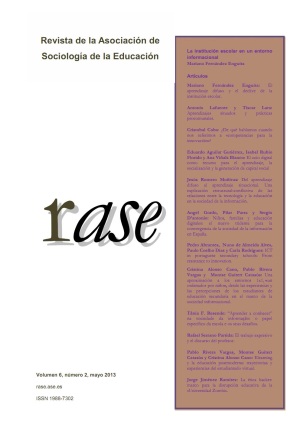ICTin portuguese secondary schools: from resistance to innovation
DOI:
https://doi.org/10.7203/RASE.6.2.8357Keywords:
Organizations, Technology, Leadership, Public Policies, Portugal. Abstract
Abstract
This paper adopts an organizational approach to analyse the divergent intensity and modes of ICT implementation in 12 Portuguese secondary schools. An ambitious Technological Plan for Education generated dramatic changes in state schools during the last years. Still, data provided by headmasters, teachers and students in these schools, complemented by interviews and external evaluation reports, show that ICT resources, strategies and pedagogical uses vary greatly among schools, challenging the constitutional principle of equal opportunities. The research identified three broad categories of schools in this regard: innovative, ambivalent and traditional. Leadership, ICT coordination, school identity, inter-departmental cooperation and partnerships are pointed out as key factors explaining the high level of diversity. The article concludes with an overview of the implications for research and for public policies in this domain.
 Downloads
Downloads
Downloads
Published
How to Cite
-
Abstract374
-
PDF (Español)107
Issue
Section
License
![]()
This work is licensed under a Creative Commons Reconocimiento-NoComercial-CompartirIgual 4.0 Internacional.




